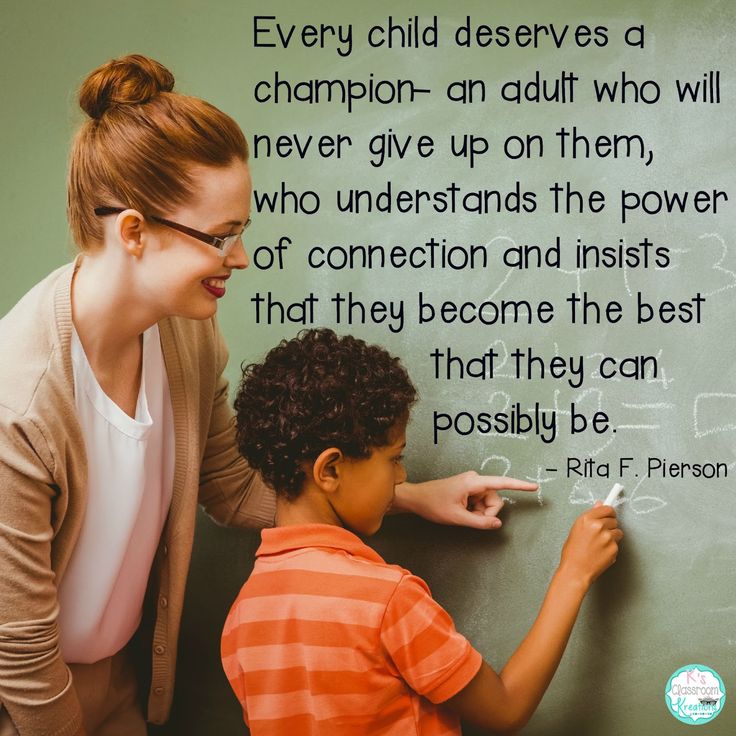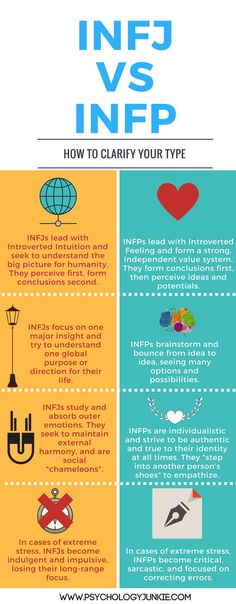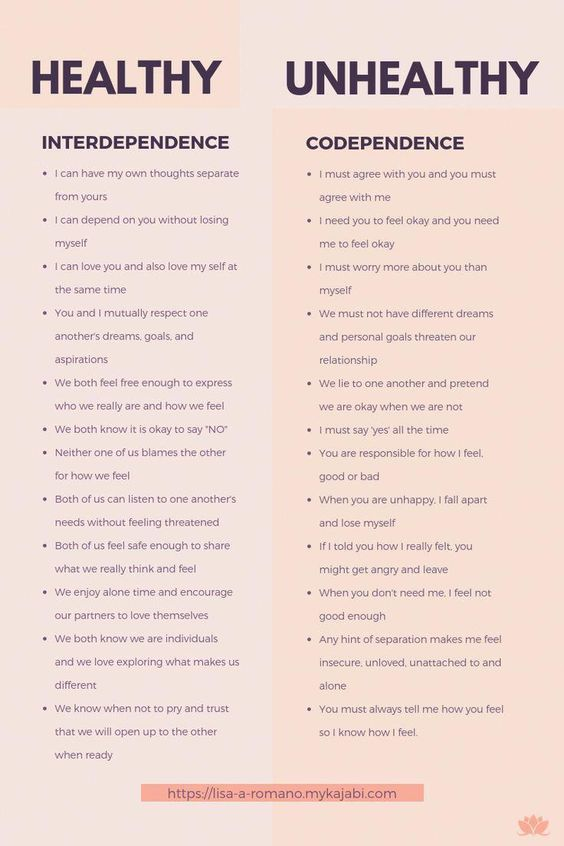Second time marriages
9 Reasons Why Second Marriages End in Divorce
Statistics show that in the United States, 50% percent of first-time marriages, 67% of second marriages, and 74% of third marriages end in divorce. Yikes, that sure sounds bleak.
But, why is this? You’d think one would get ‘better’ at the whole marriage thing with more practice. And whatever happened to third time’s a charm?
With each waltz down the aisle, surely the bride and groom both think- “this time I got it right, this is the real thing, this is unshakable, this the marriage that will beat all odds..”
But even if you picked right, sadly the deck is stacked against you from the get-go.
Turns out, there are many reasons why second and third marriages fail.
If you are contemplating remarriage, be aware of these stumbling blocks. And when/if you find yourself up against one, know that with patience, understanding, communication, hard work, and love, you can overcome!
1. Been There, Done That, and SurvivedIf someone has been through a divorce once before, and knows they can make it through this tragic, life-altering ordeal, then maybe they are less terrified of going through it again when the sh$t hits the fan.
The thought process might be “I’ve done it once, lived to the tell the tale, and can survive it….again.”
They may also be more inclined to run at the first sign of trouble.
So, it’s not that one gets better at marriage with every marriage, it’s that one gets better at divorce with every marriage.
2. Divorce BaggageHaving been through a wrenching emotional experience, one might be wary of fully opening their heart to a new love.
Someone may think they are over their divorce, but deep down, at the subconscious level, their wounds are still raw.
A fear of intimacy- getting too close- leaves them scared of giving their all. Vulnerability reminds them of the pain from the divorce.
Always expecting the worst, being a ‘Debbie Downer’, with doomsday around every corner is not healthy for the new relationship. A glass-half-full attitude can become a self-fulfilling prophecy.
Carrying the same emotional baggage, and pain, from one relationship to another is poisonous.
Sometimes divorcees get TOO set in their ways of independence, especially if they have been divorced for a long while.
If someone is not willing to fully merge their life with yours, the marriage will be difficult to sustain.
Make sure everyone going into the new marriage is emotionally healed, and healthy, and really ready for a fresh start.
3. Marrying for The Wrong ReasonsFeeling lonely, or feeling like one just can’t hack it on their own, can lead to hasty decisions. Reentering into coupledom, without clearly thinking things through in a mature manner, sets a marriage up for failure.
Rebounding is quite common, as the attention from another suitor can be very intoxicating, like an addictive drug. Running from one relationship to another, without giving it proper time and assessment is dangerous.
Once the infatuation wanes, the reality of the relationship may not be as rosy without those rose-colored glasses.
4. Not Enough Time Spent Getting to Know Someone
Not Enough Time Spent Getting to Know SomeoneIt’s important to get to know someone in ALL aspects of life before marrying them.
No one is always the best version of themselves, and it’s important to see someone when they aren’t – see how they handle stress, criticism, bad luck, tough times, rejection, and failure. How are problems dealt with as a couple?
No wonder most couples from the hit show The Bachelor/The Bachelorette break up. It’s pretty easy to love someone when it’s all roses, champagne, and rainbows.
Without taking the time to see the whole person – the good, the bad, and the ugly – one won’t get the chance to properly evaluate their new mate before making a major life decision, i.e. marriage. This applies equally to first marriages and every marriage after.
Taking the slow (dating) boat is the only way to make a truly informed decision.
5.In a new relationship? Check out 24 (Essential) Rules for Dating After Divorce.
 Kids as the Common Glue
Kids as the Common GluePerhaps the cement holding a 2nd/3rd/4th marriage together isn’t as strong. Marriage, historically and as an institution, was mainly intended as a structure for raising offspring.
Since most subsequent marriages do not produce children, there is no common glue binding them together.
Couples won’t be as inclined to ‘work it out, for the children’s sake’ when things get rough. Many often sacrifice their own happiness and stay in a (first) marriage way past its expiration date. Everyone knows at least one couple who waited until the kids left off to college to divorce.
As hard as kids are to raise, and as tough as they can be on their parents, they act as a stabilizing influence in marriage.
Furthermore, without children in common, the element of family is not as fundamental. So, the desire to keep the family together is not as strong.
Simply put, there is less at stake in allowing a marriage to dissolve when little children hearts aren’t a factor.
While children act as binding agents in first marriages (even rocky ones), stepchildren are often the dissolving agents in subsequent ones
Children from a prior marriage make subsequent marriages even more complicated. The more children the more complications.
Learning to live with other people’s children isn’t easy, I can barely live with my own on days when they are just being little hellions. I can’t imagine living with someone else’s snarky, PMS-y teen girl, let alone my own.
Plus, children often harbor resentment for their parent’s new spouse and will go out of their way to make things difficult.
Children heal from divorce at different rates, some faster and easier than others. Many fantasize about their parents getting back to together for years.
They mourn the loss of their family and often aren’t welcoming to new step-parents or step-siblings. They view them as obstacles to mommy and daddy getting back together.
Furthermore, stepparents do not have the power to be a disciplinarian and find themselves in the difficult position of having to bite their tongues. They often feel walked upon by their partner’s children, disrespected in their own home, with not much they can do about it.
It takes patience, time, and intense communication to make the new, blended family run at some semblance of smoothly.
7. The Ex-FactorRelated: Stepping into Step-Parenting (Struggles, Boundaries, Advice)
Then there are exes to cooperate with.
So basically, as more and more characters join the blended family, the crazier the circus gets. Juggling these relationships can cause problems and generate animosities, further complicating the new family dynamic.
And while some exes are thrilled to see their ex enter a new marriage—especially if it ends their alimony payments – some are sad, seething, and still feel betrayed.
Some angry exes continue to drag their ex-spouse back to court for various (often petty) reasons long after the divorce is final, just because they can.
Some exes may thrive on attempting to sabotage your new relationship every chance they get. These off-the-wall, ill-intended actions do cause serious emotional and financial strife in the new marriage.
Even worse, they may use children as a ploy in combat against you and your new partner …yes – it’s very sad, and yes – very stressful.
8. Money MattersIf my ex sounds at all like yours, you should definitely give this a read: How to be in the Same Room with an Ex You Loathe
Money is often an issue in first marriages but becomes even more pronounced in second/third marriages due to child support and spousal maintenance payments.
Money and resentment go hand in hand in second/subsequent marriages, and can especially feel the strain when money is tight. And issues only compound when bringing in debts.
As individuals, we all have our own philosophies on money: saving vs. spending.
Money matters tend to bring out a lot of ‘feeling’ in people.
Maybe one spouse feels like they are fronting the bill for most of their lifestyle because much of their new spouse’s money is going toward child rearing expenses for children that aren’t theirs, and aren’t particularly pleasant, and surely aren’t appreciative.
A new wife might feel bitter that her new husband is paying what she considers an exorbitant amount in spousal support to his ex-wife. A newly wed bride may feel resentful that now, because of her new marriage, she must forfeit her alimony. One ex may feel like they pay too much in support, while the other ex feels that they are paid too little.
Even if money isn’t especially tight, money still has an influence. If wife of marriage present wants to take an African Glamping Safari but can’t because hubby must keep sending those hefty checks to wife of marriage past, she’ll probably get a bit pouty when she must settle for state-side camping instead.
And even if money is bountiful, there can still be issues. For example: Contemplating early retirement? No can do hubby number two- wife number one won’t allow for it, she demands those payments- sorry new wife.
People are just weird about money, and divorce seems to make people even weirder about it.
9. Complicated Family Matters & In-Law SituationsIn-laws, and extended family in general, are difficult enough. In-Law relations, family past and present, become especially challenging in subsequent marriages, particularly when both spouses bring children into the new marriage.
The cast of characters would include husband’s parents, wife’s parents, husband’s ex’s parents, and wife’s ex’s parents… then throw in a few shady cousins, weird uncles, and obnoxious aunts. Whose house do you go to for Christmas?
Then, two of these in-law couples could be divorced as well, adding yet another pair of in-laws. Like cells they just keep breaking off, replicating, and expanding. If one of the spouses in a third marriage has children from their previous two marriages, the mathematic variation of potential extended-family complications just expands.
If one of the spouses in a third marriage has children from their previous two marriages, the mathematic variation of potential extended-family complications just expands.
If you are contemplating re-marriage, it’s best to go in bright-eyed and but also with your eyes opened wide. Be wary of these many pitfalls and deal with any issues head on.
Be aware, be communicative, and be patient. You CAN be a success story! Break the wheel! Skew the statistics!
Why Second Marriages Often Tougher Than First Marriages
Half of all marriages end in divorce. That is a pretty well-known statistic. But what you may not know is that the risk of divorce increases with each subsequent marriage. Second marriages have a 60% divorce rate, while 73% of third marriages end in divorce.
Why is this? After one divorce, wouldn’t a person learn from their mistakes so they do not have to divorce again? You would think so, but that is not always the case.
One of the biggest reasons for a second divorce is that people rush into new relationships. After a divorce, people should take time to discover themselves. They should think about the mistakes they made in their marriage and figure out how not to make them again. They should also think about what they are looking for in a partner. After being married, they should have a better idea of the qualities they like in a person and which ones are deal-breakers.
After a divorce, people should take time to discover themselves. They should think about the mistakes they made in their marriage and figure out how not to make them again. They should also think about what they are looking for in a partner. After being married, they should have a better idea of the qualities they like in a person and which ones are deal-breakers.
But that does not always happen. Many people get scared after a divorce. They are on their own for what could be the first time in decades. This is very scary to some people. Therefore, they quickly find rebound relationships. They get serious quickly and settle down . They get married again and bring all their issues with them. This then leads to a second divorce.
First divorces are scary. People do not know what to expect. There are a lot of emotions involved. By the time a person is married again, they do know what to expect. They have been down that road before. The process is not as scary. Therefore, they are not as willing to work on their marriage. They survived their first divorce, so they are confident they can survive another if things do not go their way.
They survived their first divorce, so they are confident they can survive another if things do not go their way.
Also, many couples delay their first divorce because of children. Many couples stay together for longer than they want to because of the kids. Kids are usually not a consideration in subsequent marriages, since they are typically grown or at least close to it by then. Because of this, couples are more willing to divorce.
So, if you plan to tie the knot again after divorce, know that the odds are stacked against you. It is possible to live happily ever after, but it will take some work to defeat the odds. Here are some other reasons why marriage is often harder the second time around.
There is More Baggage InvolvedThe first time you got married, you may have just gotten out of college—or even high school— and had very few relationships. There were no kids involved and no emotional drama to deal with.
Things change when you get married. Kids come along. You may be dealing with your spouse’s infidelity. Perhaps there is addiction or abuse involved. Now that you are divorced, you are likely dealing with loneliness.
Kids come along. You may be dealing with your spouse’s infidelity. Perhaps there is addiction or abuse involved. Now that you are divorced, you are likely dealing with loneliness.
By the time you are ready for marriage #2, there is much more at stake. You and your partner both have emotional issues, kids, drama from the first spouse, the whole nine yards. You may think you can deal with all this, but it is very stressful.
There are Stepchildren InvolvedThis goes along with the concept of baggage, but it deserves its own category because while children can keep first marriages together, they often break up second marriages. Children react to divorce in different ways. Rarely do they like the fact that their parents are getting married again. They often resent the new spouse and will do what they can to break up the marriage. They have dreams of their parents getting back together and will try to get rid of the obstacle—the stepparent. Stepparents have no authority over stepchildren, so it will take a lot of work and patience to deal with this situation.
When people get divorced, they feel lonely and scared. They rush into relationships and marry the first person who makes them feel secure. They like the attention they get from their new spouse. But relationships run their course. The infatuation goes away and real life takes over. The person realizes they made a hasty decision and decides this is not the person they want to be with. Another divorce ensues.
Money IssuesMoney matters are more pronounced in second marriages, as one spouse is usually paying child support or alimony to an ex-spouse. The other spouse may feel resentment as he or she is paying for most of the household expenses. Money may be spent on stepchildren who are unappreciative. Even if there is sufficient money, there will always be disagreement about how it is spent.
Family ComplicationsThings are complicated enough when you consider your own extended family, such as aunts, uncles and cousins. Holidays and celebrations get even more complex when you consider in-laws and the family of the ex-wife or ex-husband. Then you and your spouse are bringing children into the mix. This can bring about resentment and family strife when you cannot please everyone. It is best to plan for this ahead of time and try to come to an agreement with your spouse.
Holidays and celebrations get even more complex when you consider in-laws and the family of the ex-wife or ex-husband. Then you and your spouse are bringing children into the mix. This can bring about resentment and family strife when you cannot please everyone. It is best to plan for this ahead of time and try to come to an agreement with your spouse.
A successful marriage takes a lot of work. That is why second and subsequent marriages fail at higher rates. When people are older, there is more baggage involved and it is harder to overcome certain issues.
Whether this is your first or third divorce, Broward County divorce attorney Scott J. Stadler can help you through the process and get you a favorable outcome. Schedule a consultation by filling out the online form or calling (954) 346-6464.
Marriage for the second time: easier or harder?
- Elena Savinova
- Psychologist
Author of the photo, Unian
Now few people are surprised by divorce and remarriage. Once and for all life - rather, such relationships become rare.
Modern and independent do not want to endure, give in, forgive. For what? There is only one life! And often they step on the same rake again. How to protect yourself from this?
Are they all the same?
It would seem that when you have experience in something, it is easier not to make mistakes. But the painful experience itself can also interfere with a harmonious relationship. The most common problem is the subconscious perception of new relationships as a continuation of previous ones.
All the men of my friend Tamara looked alike, like brothers. Her explanation, they say, she "falls" on the same type, was still somehow perceived. But over time, they all began to look into the glass - "like Vasya" - the first husband. Then they stopped working and settled down firmly on the sofa - just like Vasya.
And after a while she found out that while his wife worked hard at work, apparently following Vasya, they went on dates with cheerful women who were not burdened with household chores. Three times this development of relations ended in a grandiose scandal with throwing things away. But Tamara lives with her fourth husband, although she regularly quarrels. She says she realized that they don’t look for good from good.
Don't be like Vasya, change the script
Image copyright Becca Tapert/Unsplash
Seriously speaking, building new relationships after ones that didn't work out is harder. First of all, negative expectations interfere. For example, your ex-husband, under the pretext of meeting friends, actually spent time with his mistress, which led to a breakup. And now, when a new loved one tells you that he needs to help a friend move things or just meet someone, you throw him a tantrum.
Skip the podkast
Podkast
SHO TS BULO
GOLD ISTORIA TIZHNYA, Yaku explain our journalism
VIPSISKI
KINTS PODST
or as it was, which was already known already mentioned. As soon as the new quite normal husband was going to drink a glass of wine at dinner, she fell into hysterics - she again married an alcoholic. Or she admitted that she checked his phone, from where she forced him to remove all female names. Because Vasya cheated on her, therefore, with a new husband, they supposedly should not have any secrets from each other. But the new non-Vasya still managed to lull his wife's vigilance. The one and only “female” contact left on the phone, Maria Filippovna, turned out to be not an accountant, but a mistress.
So why, with such security measures, did the next marriages of tamarins fail? Yes, because Vasya was new, and the scenario in the mind remained the same. In a month he will start drinking, in a year he will change. And in general - they are all goats!
This perception is inherent in people with low self-esteem or a victim complex. Perhaps they themselves had a similar picture before their eyes in childhood. Or, in any case, they did not have sufficient emotional support from their parents. Such people seem to say: you can’t do this to me. What is not something that provokes, but attracts those who will treat them badly - but, at least, they are accustomed to.
The third one is superfluous
Another common mistake is that when communicating with new partners, you continue to mentally prove something to the previous ones. For example, you said that I am a bad housewife, so now I will diligently take care of the house. Only what I am flawless, you will see not you, but my new husband. Or: you always reproached me for not being able to earn money. So now I earn enough - and my new wife is happy.
There seems to be nothing wrong with that. Except that you psychologically still live with your exes. And it’s not your own desires and not even the desire to please your new husband that motivates you to do something well, but an unfinished dialogue with the former.
From the literature we know many examples when brilliant poems or musical works were written in spite of or out of spite. But by living in the past, you are only using your current partner as a backdrop. And this is dishonorable and embarrassing. He or she will feel it sooner or later, and you will have to save a new relationship.
Therefore, do not bring conflicts from previous marriages into the present. If you have not yet completed the relationship or left it with a trauma, do not rush to "treat" with new love. And turn a new acquaintance into a vest or a psychoanalyst. And when you still decide to start a new life, start it from scratch.
Dosed openness and inviolability of boundaries
Image copyright Ben Rosett/Unsplash
No matter how hurt your ex-husband is, don't tell your new husband how bad life was for you before him. And although new partners often encourage such revelations, motivating them in the same way - so that there are no secrets, nevertheless, the details of your previous life with another person should not concern them. I know many cases when premature excessive frankness then caused a feeling of guilt and, as a result, alienation from an overly inquisitive partner.
Or vice versa. The new husband, on the basis of some extra information, arranged scenes of jealousy for his ex-husband for his wife. She couldn't understand why. She truly loved her new partner. The fact is that the woman accepted everything that happened to her "ex" only as a fact from the past. Her husband, having given free rein to the imagination and food for the mind, gave these facts an emotional coloring. He mentally scrolled through her dialogues with her ex-husband, was offended for her and for her. I wanted to take revenge, I did not understand how you could allow yourself to be treated like that. In a word, he tortured himself and his wife. Although all these events had already happened, and it was impossible to fix something.
So it's better to immediately identify personal boundaries that no one should cross. I hope they will also include your personal correspondence, access to the phone and computer. After all, we know that all those suggestions about "the whole" and "the truth, and nothing but the truth" are nothing more than a desire to control disguised as care. As a manifestation of self-doubt of one or even both partners.
Healthy relationships are based on mutual trust and respect.
From the third time: women are satisfied with marriage after the second divorce | Article
The psychological well-being of women in their third marriage turned out to be significantly higher than that of those who were married for the first and second time. Scientists came to this conclusion by interviewing several hundred women of the same age and having equal social status. Experts believe that this result is due to a decrease in requirements for a partner, the development of the ability to seek compromises and build harmonious relationships. Also, scientists note that a second marriage often becomes a way to heal the trauma after the first unsuccessful marriage. For the third time, entering into official relations, a woman knows exactly what she wants from life and from a man.
Lucky number three
According to recent statistics, on average every second marriage in Russia ends in divorce. In particular, in the period from January to November 2019, 843,890 marriages were concluded in the Russian Federation. During the same period, there were 472,328 divorces (data for the full year not yet available). And the main reason for the termination of the relationship one way or another is the desire for a happier life.
Scientists from the National Research University Higher School of Economics (NRU HSE) and the Moscow State University of Psychology and Education (MGPPU) decided to find out how the psychological well-being (subjective perception of the fullness of one's life) of the fairer sex and their marital status are related. The survey involved 365 women aged 35 to 56 years. The scientists chose the applicants for participation in the survey as carefully as possible in order to "align" the categories with each other. The average age of each group was approximately the same, with a slight difference of a maximum of a couple of years. All married participants had at least one child. The researchers ensured an equal percentage of full-time and part-time workers, as well as those with varying degrees of power at work, for each category of respondents. There were five categories of respondents in total: married (first, second or third), divorced and never married.
Psychologists asked women to take a series of tests showing subjective marital well-being. They revealed both the general level of satisfaction with life and its individual areas - relationships with people, a sense of independence, the achievement of personal goals, acceptance of oneself and other people.
It turned out that in the third marriage, the psychological well-being of a woman is significantly higher than in the first two. On average, the level of life satisfaction of all respondents was within the average of healthy people. However, among women in their third marriage, this indicator was at the upper limit of the norm. For those who were married for the first and second time, as well as for divorced - at the same average level. The least happy were those who had never been married - their well-being indicator was at the lower limit of the norm.
In addition, the scientists found out that the ladies in their third marriage were somewhat more striving for self-development and self-realization. According to the questionnaires, this category of women was more independent of the opinions of others, more confident in their ability to influence life circumstances. Such ladies, according to the survey, are able to learn from their mistakes and are more supportive of others.
Independent woman
Scientists have found several explanations for this phenomenon. They made several assumptions about how the nature of women and the fact of divorce affect the formation of personality and overall level of satisfaction with life.
— Presumably, having a lot of life experience in the form of divorces and new marriages makes a woman more flexible and resilient ,” said Elena Chebotareva, Associate Professor of the Department of Child and Family Psychotherapy at the Moscow State University of Psychology and Education and the Department of Psychology at the National Research University Higher School of Economics. - She acquires all the qualities that allow her to organize her own life. On the other hand, it is possible that a lady who initially possesses such qualities will be more demanding of her marriage. This means looking for better relationships and a tendency to keep going.
Another explanation is that some girls are more focused on other areas of life, such as a career, so it is easier to part with partners, because the quality of their life depends little on their husband.
— In my opinion, the results of the study can really be explained by the specifics of the experience of divorce, — added Elena Laktyukhina, associate professor of sociology at VolSU. — A woman experiences not only trauma in terms of the loss of a loved one, but also guilt for the fact that she "could not save her family." The second marriage often becomes a way to “heal” the trauma, at this moment the girl is not yet confident in herself. But when the situation of the breakdown of marriage is repeated, it is already less traumatic. Therefore, in the third marriage, a woman feels calmer : she knows exactly what she will do in the event of a divorce. It is important that it was not the third marriage as such that helped them in finding happiness, but the strengthening of self-confidence, the emergence of new goals in the field of self-realization.
As for the less satisfaction with life in the first marriage than in the third, it should be taken into account that it is at this time that the birth of the first children occurs. Which, as the expert notes, greatly increases the burden on both spouses. In addition, the first marriage is the first experience of living together, which is often filled with conflicts and inconveniences. In remarriages, spouses more easily adapt to the other person.
Interestingly, in the group of women in their first and second marriages, a direct correlation was found between satisfaction with these relationships and general indicators of psychological well-being. The higher the women's assessments of their marriage, the happier they were themselves. In the third marriage, these parameters were practically unrelated. This is consistent with the fact that in the third marriage, the fair sex is more likely to rely on themselves.
- Satisfaction with marriage can be represented as a ratio between expectations from him and reality, - said the head of the department of developmental psychology of Moscow State University. M.V. Lomonosov, professor Olga Karabanova. - For a woman who has accumulated this experience in marriages, the expectations become correct - they are not overstated and not fantastic. Therefore, some of the shortcomings of marriage do not affect her level of happiness.














